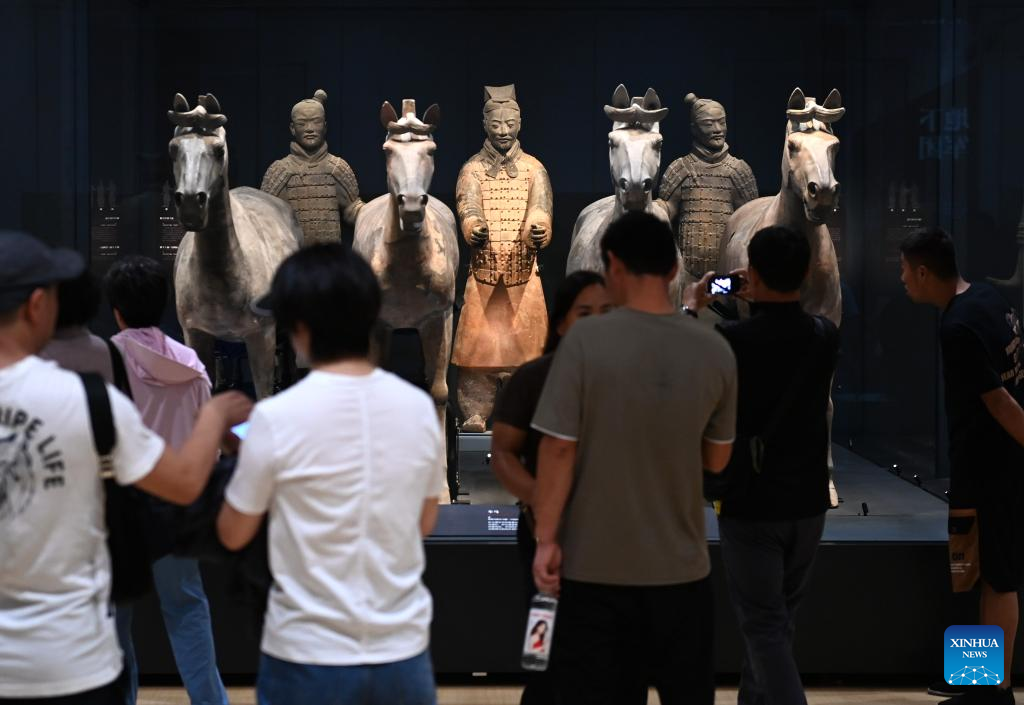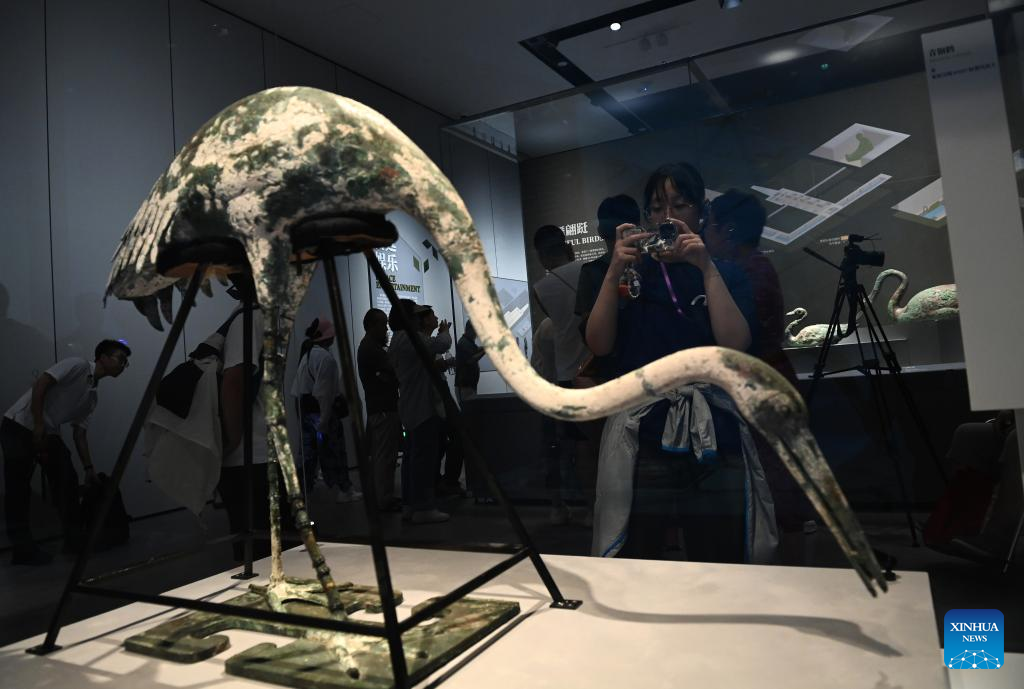(Xinhua) 08:20, September 10, 2024

Source: XinhuaEditor: huaxia2024-09-08 15:01:15
People visit an exhibition, commemorating the 50th anniversary of the discovery and excavation of the iconic Terracotta Warriors, at the Emperor Qinshihuang's Mausoleum Site Museum in Xi'an, capital of northwest China's Shaanxi Province, Sept. 8, 2024. The exhibition, which opened on Sunday, showcases 230 cultural relics in eight categories, many being revealed to the public for the first time, offering a glimpse into the era of Emperor Qinshihuang of the Qin Dynasty (221 BC-207 BC). (Xinhua/Li Yibo)
XI'AN, Sept. 8 (Xinhua) -- An exhibition opened Sunday at the Emperor Qinshihuang's Mausoleum Site Museum in Xi'an, capital of northwest China's Shaanxi Province, to commemorate the 50th anniversary of the discovery and excavation of the iconic Terracotta Warriors.
The exhibition showcases 230 cultural relics in eight categories, many being revealed to the public for the first time, offering a glimpse into the era of Emperor Qinshihuang of the Qin Dynasty (221 BC-207 BC).
In 1974, local farmers accidentally unearthed clay fragments while digging a well, leading to one of China's most significant archaeological discoveries -- the army of Terracotta Warriors -- which was added to the UNESCO World Heritage List in 1987.
Around 2,000 life-size clay warriors and numerous weapons had been unearthed from three pits surrounding Qinshihuang's tomb, covering an area of over 20,000 square meters.
After 50 years of excavation and research, over 10 above-ground building sites and more than 500 underground burial pits and tombs have been discovered in the mausoleum. Over 50,000 pieces of relics have been unearthed.
. . .

More:
https://english.news.cn/20240908/69ef432f25ad430fb1c5c61e1e14b8bf/c.html
 = new reply since forum marked as read
= new reply since forum marked as read


